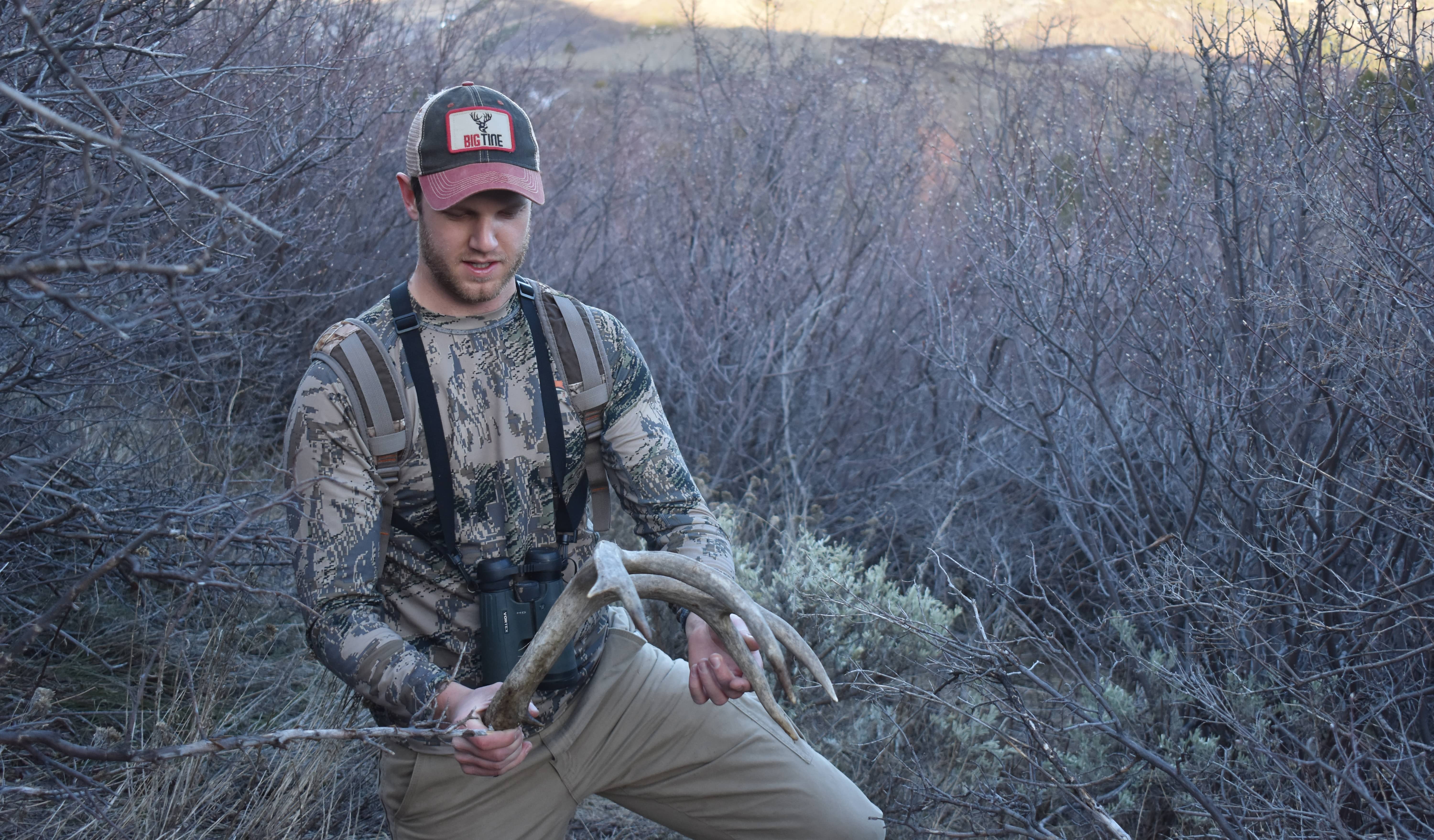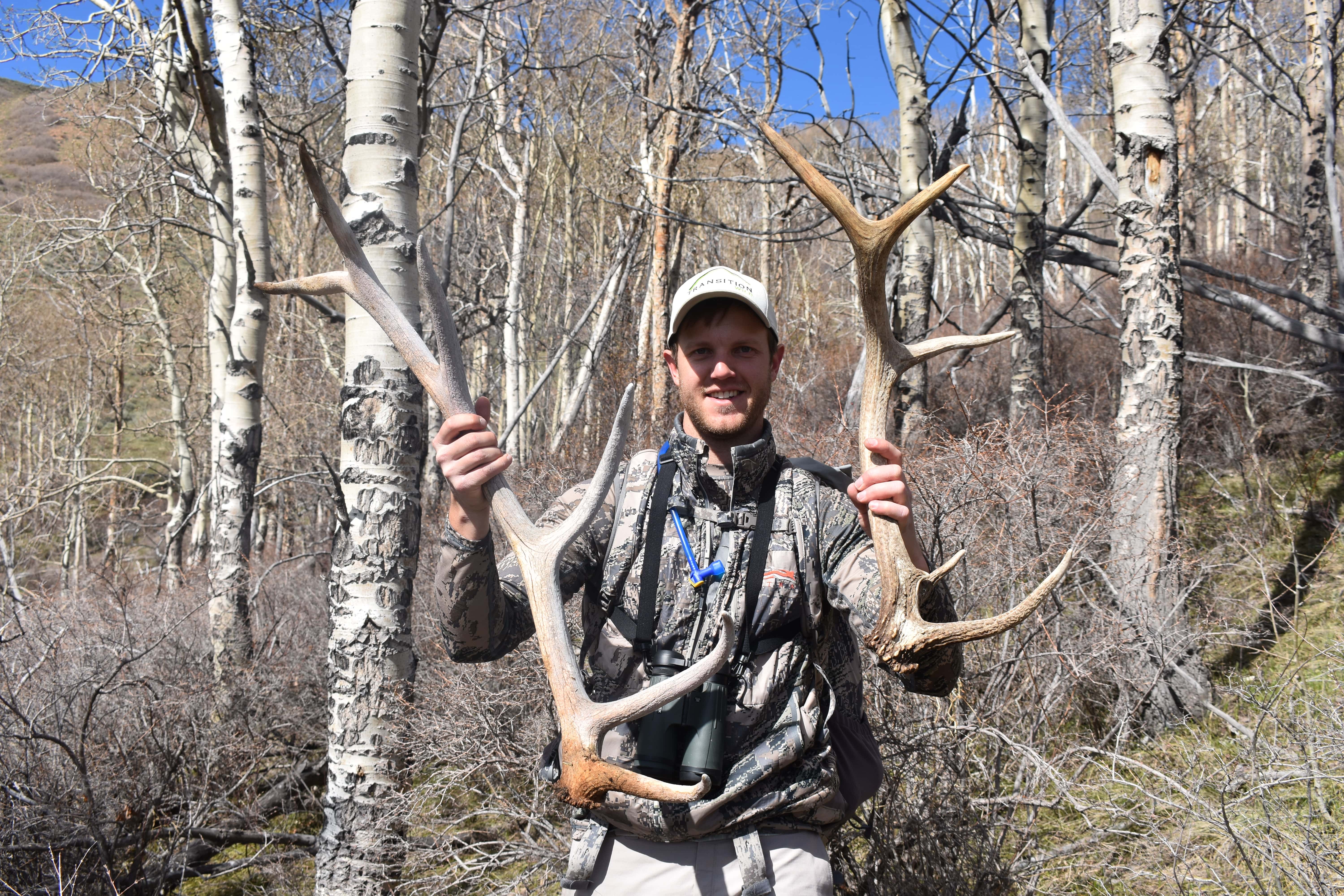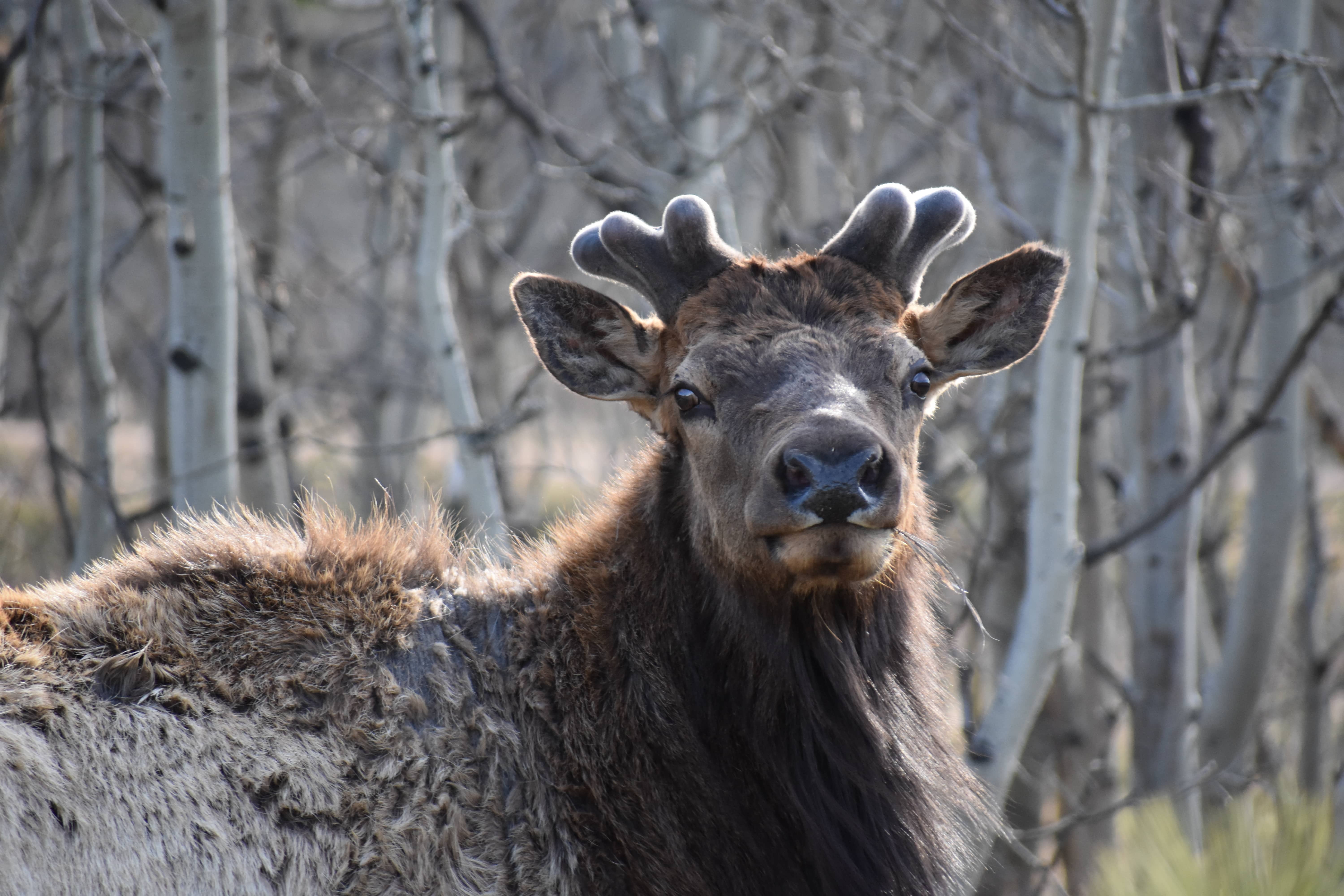transition wild
Off

By Adam Parr –
When rumors began to emerge this past Fall that shed hunting in Colorado was going to be pushed back to May, I didn’t really know what to think. Ever since my hunting addiction began to take hold, I’ve always associated March with picking up antlers and a time to get outside after a long Winter to help cure cabin fever. There’s no doubt the shed antler craze has skyrocketed in recent years for a few reasons; any serious hunter loves antlers and the market value is high. A brown elk or deer shed can bring as much as $12 per pound and can be worth far more if they are deemed “trophy” quality or sold as a matched set. It’s no wonder why more and more people setting off into the hills in search of brown gold.
As the number of people entering wintering areas increases, the animals are affected, hence the reason for further restrictions. For those of you who are in the dark about the new shed hunting regulations, here is the simple rundown:
Believe me, I’m all for a shed hunting restriction because it’s what’s best for the animals but it does present some challenges. Here are my perspectives from both sides of the fence.
My life literally revolves around deer and elk hunting, from my job in the hunting industry to my hobbies and this blog you’re reading right now, so their well being is in my best interest. The fewer people we have walking around during a critical recovery period means a decreased winter mortality rate and increased fawn survival.
Yeah, you read that right. I’ve caught major flack from my Colorado Shed Hunting Video I posted last year for “exposing” secret shed hunting spots and for promoting shed hunting. I’m being completely serious. It was ridiculous the amount of hate mail I was receiving but now that no one can shed hunt until May, it is safe to assume that the animals should be recovered and no more winter kill will occur on my behalf.

Secluded pockets of aspen trees are great areas to find elk antlers in Colorado’s high country.
We all know that bad guys don’t abide by the law so unfortunately there will be more antlers than usual for them to pick up and less for the guys who play by the rules. I’ve seen it first hand in an area where I’ve shed hunted in Southwest Colorado that has had May 1st restrictions in place for many years. Someone always goes in early and unfortunately, I think this will be a common occurrence going forward, especially with a nominal violation fee.
Coinciding with the point above, other recreational activities such as hiking, biking, four-wheeling, snow-shoeing, camping, etc. are not prohibited in the same areas where shed hunting is restricted. This means that there will still be human activity in wintering areas during these critical times. Bottom line, it will be tough to police shed hunting and I have a feeling we will see a fair bit of antler “stashing” during the months of March and April.
With the new restrictions put in place by Colorado, it’s safe to assume neighboring states will get pounded. This (new law) is good for Colorado but can have negative consequences for Utah, New Mexico, and other western states that don’t have a May 1st opening day. I witnessed an influx of Utah license plates parked along the roads last year during March in Colorado when Utah instated their shed hunting restriction until April 15th. Coincidence? I think not.
I’m no biologist and the severity of Winter can vary year to year but in my opinion, May 1st is a bit excessive. By the time April ends, the grass is green and the antlers become tough to spot. However, if the extra time ensures the animals roll into Spring healthier, that is in the best interest of everyone.
Like other natural resources, I think we need to look at antler collecting in a similar manner to fishing, hunting, mining, tree harvesting, etc. People are using and/or monetarily benefiting from a resource so there is an opportunity for income generation, which could ultimately go back towards conservation efforts. When a team of guys go into an area on horseback, pick a hillside clean of 30 antlers and sell them for thousands of dollars to an antler buyer, shouldn’t the state make some money? Many would disagree, but I for one would be happy to pay a license fee if it means more money goes back to protecting the resource.

A mature Colorado bull elk sprouts new velvet growth after shedding its antlers during the Spring.
With Utah opening before Colorado and Nevada instating a shed hunting restriction in select counties for 2018, I think all western states should get on the same page in regards to closures. Utah is looking like a prime candidate for heavy foot traffic this Spring, which could have profound long-term effects on the animals.
For a full FAQ page on the new regulations pertaining to Colorado shed antler hunting, visit: http://cpw.state.co.us/antlershed
I don’t pretend to have all of the answers but starting a conversation will help bring awareness to the issues presented. What are your thoughts on Colorado’s shed hunting closure? Share your comments below.